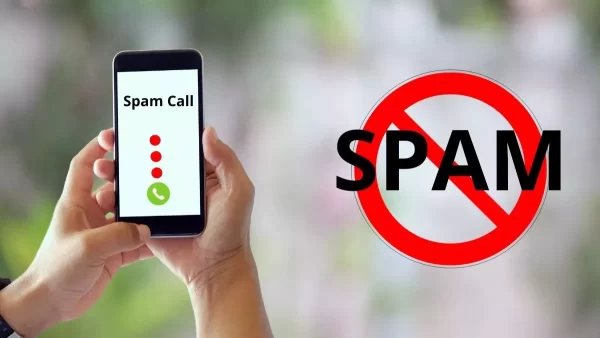Your Ultimate Guide to Identifying and Handling Suspicious Calls: Who Called Me from This 91743000 Number in Australia?
Warning: 91743000, 02 9015 3809, 02 8912 5632, 429558833, 0429 558 833, 429904422, 289125632, 392649101, 6622553743, 03 8639 5130, 255503757, 731198094, 754801369, 07 5480 1369,
731198092, 02 7922 9201, 02 9015 3806, 02 8294 8295, 02 5633 9770, 0480 031 318, 382025033, 386395130, 1300655506, 02 6917 1707, 02 8318 8102, 256339770, 291743000, in Australia.
Introduction
In this comprehensive guide, we will delve into the intricacies of identifying and handling suspicious calls, specifically focusing on a specific number: 91743000 in Australia. Unwanted calls, often referred to as spam or nuisance calls, have become an increasingly prevalent issue in today’s interconnected world. These calls can range from unsolicited marketing messages to potential scams, posing risks to personal security and privacy. Our primary objective is to equip you with the knowledge and tools needed to protect yourself and efficiently deal with such calls.
Understanding the Prevalence of Unwanted Calls
Unwanted calls have become a widespread nuisance, and millions of people across the globe encounter them daily. The digital age and the ease of accessing phone numbers have provided malicious entities with opportunities to exploit unsuspecting individuals. One of the most effective ways to address this issue is through a comprehensive understanding of these calls and proactive measures to combat them.
Identifying Suspicious Calls
- Analyze the Caller ID
The first step in identifying suspicious calls is to examine the caller ID information. However, be cautious, as scammers can manipulate caller ID data to display misleading information. If you receive a call from an unknown number, it’s essential to approach it with skepticism.
- Listen to the Call
During the call, pay attention to the caller’s behavior and the content of their message. If the caller insists on obtaining sensitive information or pressures you to take immediate action, it could be a red flag.
- Verify the Number
Before taking any action, conduct an online search for the phone number that called you. Trusted online directories can help you determine whether the number is associated with legitimate businesses or known scams.
- Trust Your Instincts
Intuition often serves as a valuable guide. If something feels off about the call, trust your instincts and end the conversation promptly.
The Growing Concern of Phone Scams
- Common Phone Scams
Phone scammers employ various tactics to deceive their victims. Some prevalent phone scams include:
- Financial Scams: Scammers pretend to be representatives from banks or financial institutions, attempting to obtain personal and financial information.
- Government Impersonation: Callers pose as government officials, threatening victims with legal action or penalties if they fail to comply with their demands.
- Tech Support Scams: Scammers claim to be tech support agents, insisting that your computer has issues that they can resolve remotely.
- Prize or Lottery Scams: Scammers inform victims that they have won a prize or lottery but must pay a fee to claim it.
How to Handle Phone Scams
Dealing with phone scams requires a level-headed approach to protect yourself:
- Do Not Share Personal Information: Never disclose sensitive details like Social Security numbers, bank account information, or passwords to unknown callers.
- Hang Up: If you suspect a call is a scam, hang up immediately. Do not engage in conversation or follow any instructions.
- Report the Scam: Report suspicious calls to your local authorities or relevant regulatory agencies to help prevent others from falling victim.
- Block the Number: Most smartphones allow you to block specific numbers, preventing future calls from that source.
Protecting Yourself from Nuisance Calls
- Register with the National Do Not Call Registry
In many countries, including Australia, there are official Do Not Call Registries. Registering your number with these lists can significantly reduce the number of unwanted calls you receive.
- Utilize Call Blocking Apps
Numerous call-blocking apps are available for smartphones. These apps use databases of known spam numbers to automatically block unwanted calls.
- Be Wary of Sharing Your Number Online
Avoid sharing your phone number on public forums, social media, or any platform accessible to the public. This minimizes the chances of your number falling into the wrong hands.
- Maintain Privacy Settings
Ensure that your phone number is visible only to trusted contacts on social media and other online platforms.
Conclusion
Unwanted calls can be a significant nuisance, but with vigilance and awareness, you can protect yourself from falling victim to scams or spam. By understanding the common tactics used by scammers and employing the precautionary measures outlined in this guide, you can maintain your privacy and security.
Remember to report suspicious calls, share your experiences with others, and stay informed about the latest scams. By taking these proactive steps, you can not only safeguard yourself but also contribute to creating a safer and more secure digital environment for everyone.
FAQs
- Q1: Can the +91743000 number be legitimate?
A1: While it’s possible, such calls are often reported as spam or potential scams. Exercise caution and verify the authenticity before responding.
- Q2: Is there any way to identify the purpose of the call?
A2: It’s challenging to determine the exact purpose of the call without further information. Err on the side of caution and avoid engaging with suspicious calls.
- Q3: Will blocking the number prevent all future spam calls?
A3: Blocking the number will help stop calls from that specific source, but scammers may use different numbers in the future. Stay vigilant and employ other preventive measures.
- Q4: How can I report a spam call?
A4: Contact your phone carrier and provide them with details of the call, including the number, date, and any relevant information.
- Q5: Are spam calls dangerous?
A5: While not all spam calls are harmful, some may lead to financial loss or the exposure of personal information. Taking preventive measures is essential to safeguard yourself.


